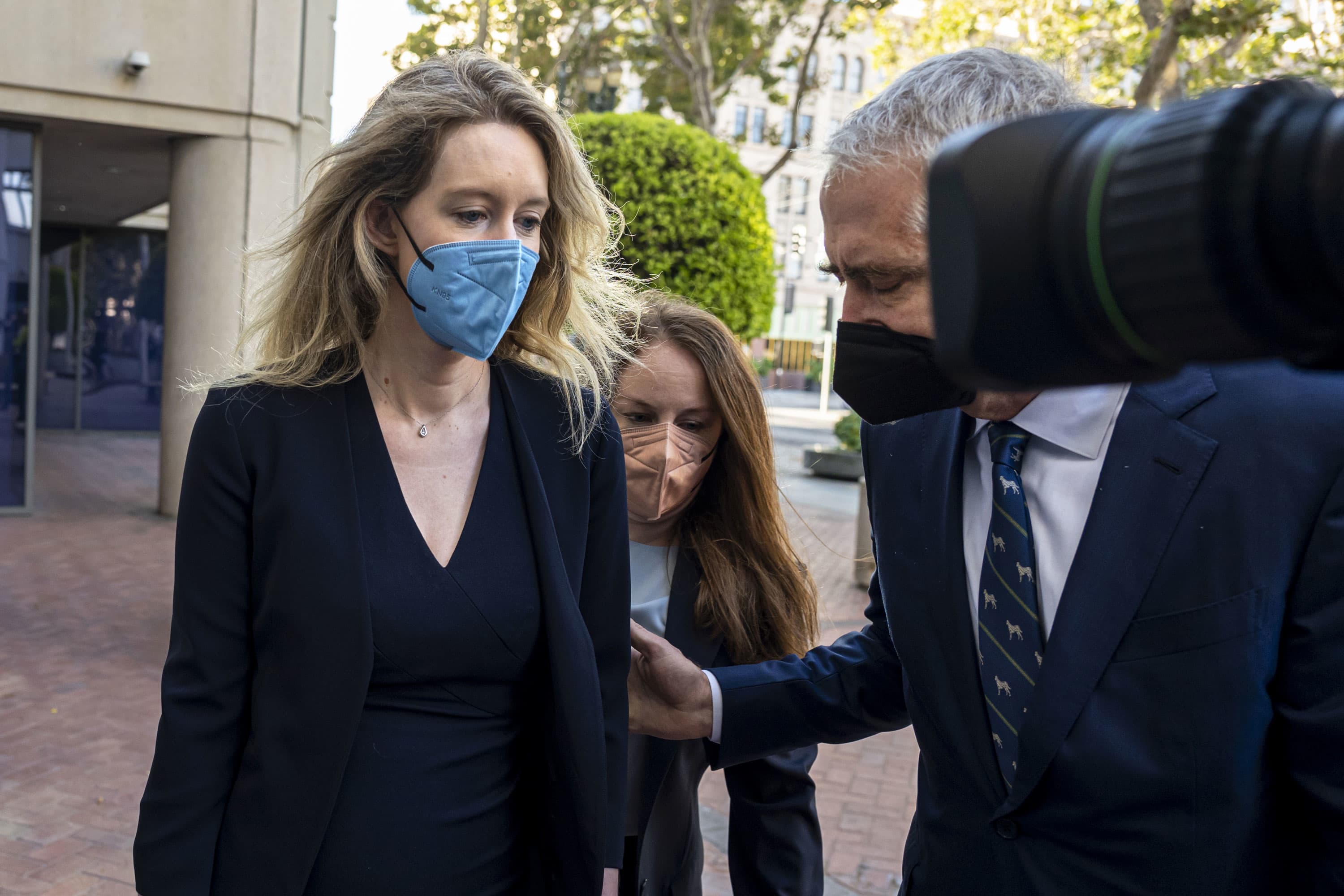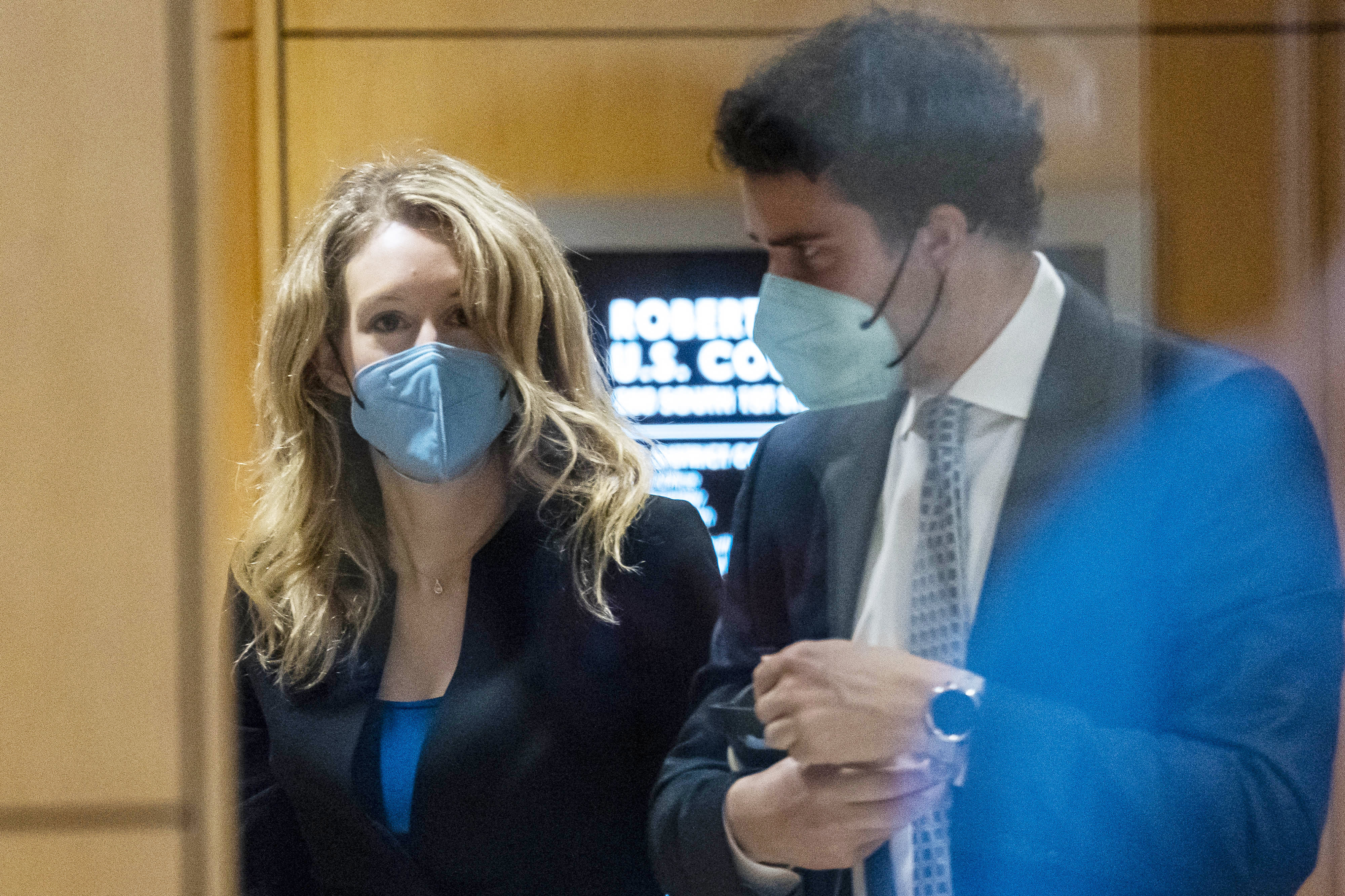The defense strategy of highlighting the many independent decisions made by former Theranos laboratory director Adam Rosendorff continued on a fourth day of cross-examination in the criminal trial against Elizabeth Holmes, founder and CEO of the now-defunct blood testing company.
Holmes is charged with making false and misleading statements to investors, doctors and patients about Theranos' blood-testing technology. If convicted, she faces up to 20 years in prison and $3 million in fines.
As lab director, Rosendorff was responsible for validating blood tests before they could be used on patients, pulling tests if the results seemed wrong, responding to doctor/patient complaints, and generally assuring that the lab complied with federal law.
Earlier in the trial, prosecutors had asked Rosendorff about a Theranos HDL ("good cholesterol") test that routinely reported lower-than-normal levels on patients tested with the fingerprick method on the Theranos Edison machines.
Get a weekly recap of the latest San Francisco Bay Area housing news. Sign up for NBC Bay Area’s Housing Deconstructed newsletter.
Rosendorff previously testified that he tried unsuccessfully to convince Holmes and her alleged co-conspirator and Theranos COO Sunny Balwani to stop using the test but got only "pushback" when he tried to resolve the problem.
Pursuing a now-common defense theme -- that the government only showed Rosendorff, and the jury, selected documents that don't tell the whole story -- Wade got Rosendorff to admit that Balwani and others "jumped" on the HDL problem right away and that the low readings ultimately turned out to come from a problem with Siemens Advia machines that Theranos also used, not with the Theranos tests or machines themselves.
The day contained several similar in-the-weeds breakdowns of long emails, with the defense trying to show that some Theranos tests worked, that Holmes, Balwani and others quickly addressed problems, and that Rosendorff often exercised his own judgment in deciding how to resolve many of the issues, sometimes without either Holmes or Balwani involved.
Not that these exchanges went smoothly. With both Wade and the witness getting testy, on one document they could only agree that "September comes after August." Rosendorff seemed increasingly impatient with the number of binders he was asked to open to review documents, particularly when one of the six huge ones he had on the witness stand completely fell apart.
Rosendorff continued what has now become a pattern of adding unsolicited commentary to his answers, most to the point that whatever he believed at the time, he now thinks the decisions and analysis employed to keep the Theranos tests on the market were not "good solutions."
Wade has repeatedly moved to strike these comments from the record. U.S. District Judge Edward Davila responded to one of these requests by waving his hands in a kind of rolling motion, suggesting that the witness and the lawyer should just move on.
Wade caught Rosendorff a couple of times directly contradicting his sworn testimony from earlier proceedings. In his responses to prosecutors, Rosendorff had said that complaints by doctors about problematic Theranos test results were "much more frequent" than those he had received as a lab director at the University of Pittsburgh.
Directing Rosendorff to one of two large yellow binders containing his testimony in a civil case, Wade got Rosendorff to admit that he had previously testified that complaints about Theranos "weren't more common than what usually sees in ... some labs with high volume" and, even more specifically, that "I don't think I had a greater number of tests that were anomalous that I had to review at Theranos than at other places I've been like University of Pittsburgh."
The back-and-forth continued as Rosendorff resisted characterizing his salary at his first post-Theranos job as "more money" despite emails showing him getting $260,000 instead of the $240,000 he was paid at Theranos.
The defense had hoped to go deeper into Rosendorff's post-Theranos employment, including his termination by uBiome, a company that has since been indicted for health fraud, although not for its lab testing methods.
Wade argued that the evidence would show that Rosendorff was not a competent lab director, a point that could spread around the blame for the Theranos's ultimate failure and dilute the focus on Holmes.
Judge Davila ruled that exploring issues with Rosendorff's employers would lead to "mini-trials" and pointed out that Wade had spent four days thoroughly challenging Rosendorff's competence.
He did allow Wade to ask Rosendorff about his current employer, PerkinElmer, which has been found to be in violation of CMS (Centers for Medicare & Medicaid Services) regulations by the same inspectors who audited Theranos.
The judge noted that Rosendorff might have "a personal interest or bias" in trying to avoid career consequences or personal liability that could have "focused or shaped" his testimony in this case.
Wade then elicited testimony from Rosendorff that he understood that the CMS investigation of PerkinElmer could result in a suspension of his lab license for two years.



